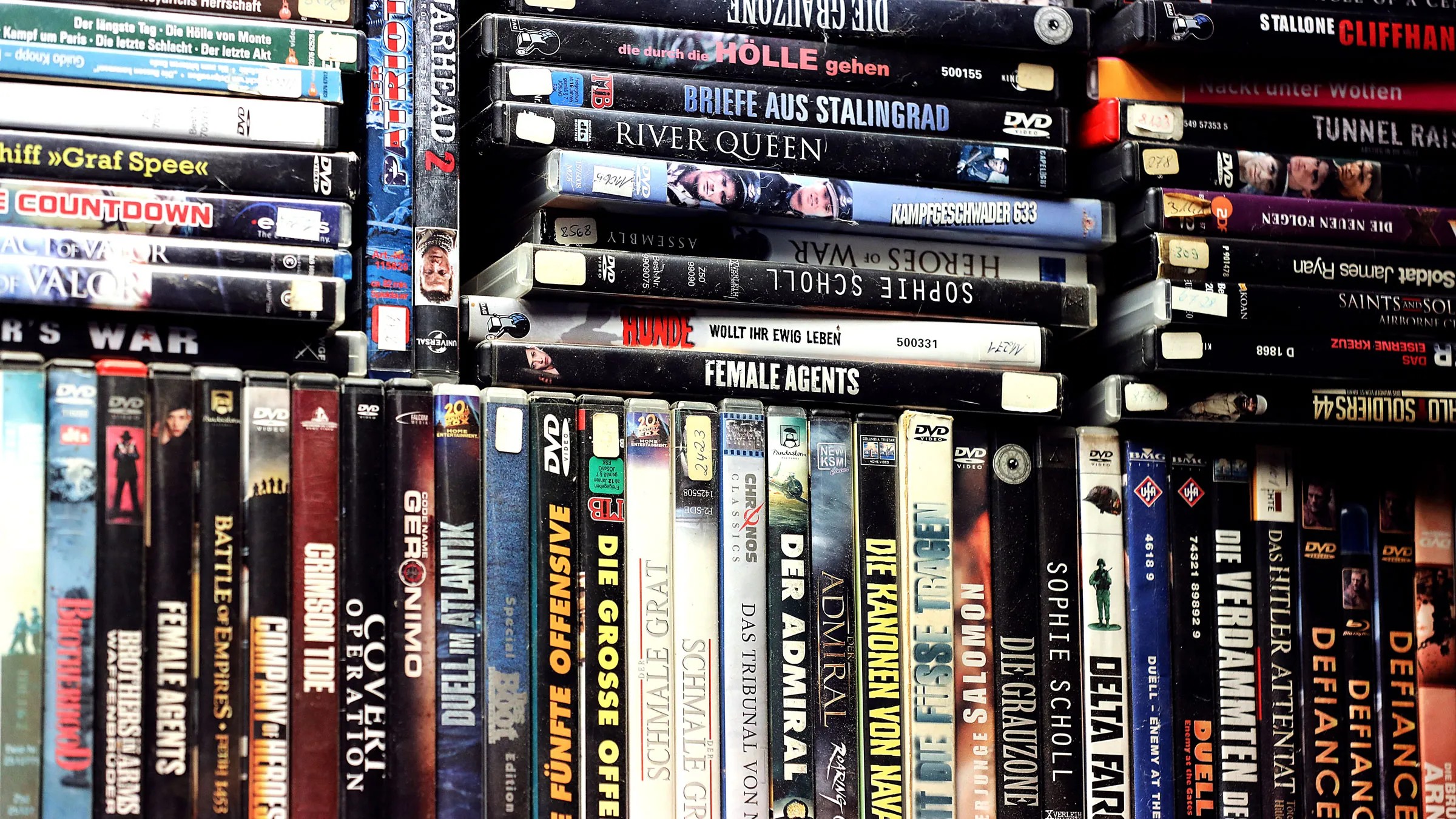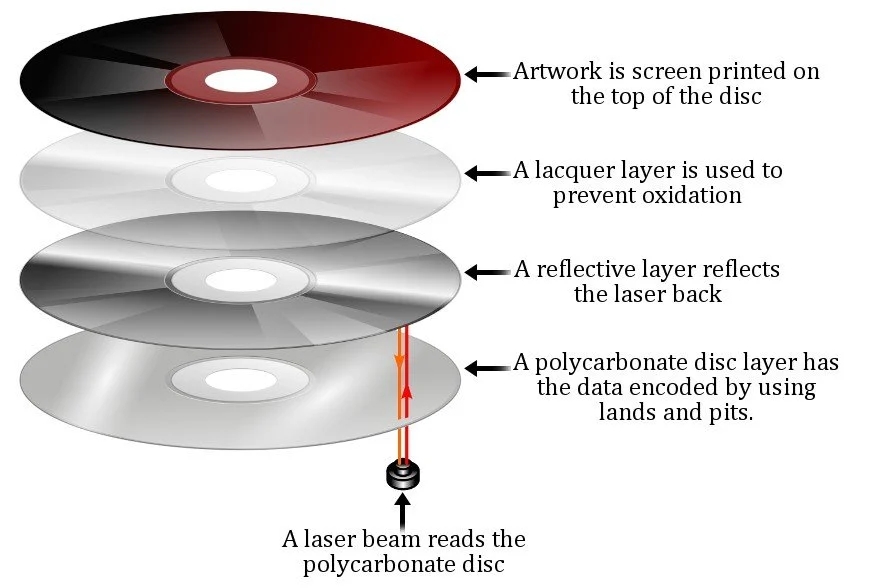What Does DVD Stand For and How Do DVDs Work?
Summary: When it comes to storing digital data like movies, music, and software, few technologies are as ubiquitous as the humble DVD. But what does DVD stand for, exactly? In this article, we’ll explore the basics of DVD, including its development history, working principles, current status, and future prospects.
Table of Contents

What Does DVD Stand For?
DVD stands for Digital Versatile Disc. It is an optical storage medium that can hold enormous amounts of digital data. It was originally made available to the public in 1995 as a substitute for VHS tapes and immediately became the most popular way to watch movies at home.
The initial breakthrough for DVDs was their sheer capacity: a conventional single-sided, single-layer disc could store up to 4.7 GB of data. Engineers later introduced dual-layer technology, which nearly increased the capacity to 8.5 GB.
Due to its large storage capacity, DVD is perfect for holding and distributing everything: movies, TV shows, music, and software. DVDs completely changed home entertainment, because they offered much better picture and sound quality than the old VHS tapes. Importantly, new features like interactive menus for navigation, options for different languages, and various subtitle choices provided unprecedented flexibility, making the DVD format great for international distribution.
Fact Check: What is a DVD? Many people believe DVD stands for Digital Video Disc, but that's not entirely accurate. Originally, DVD stood for either Digital Versatile Disc or Digital Video Disc. However, the former eventually and completely replaced the latter because computer companies and software manufacturers raised objections. They pointed out that the immense storage capacity and technical potential of the DVD went far beyond just video. It could be used to store computer data, large software applications, games, and various other types of information. The versatility of the DVD is one of its biggest selling points.
When Did DVDs Come Out?
The DVD was officially released in Japan in November 1996, followed by a launch in the United States in March 1997. This new technology represented a significant upgrade from the earlier VHS tapes used for video recording and playback.
Development of the DVD format began in 1993, with the goal of creating an optical disc with a greater capacity than the standard CD. The DVD's expanded storage allowed it to handle high-quality video and audio playback, as well as incorporate interactive elements like menus and bonus titles.
Though they initially found fame distributing Hollywood movies, DVDs quickly proved their versatility by entering the markets for software distribution, music videos, and video game media. While the rise of streaming has naturally reduced the format's mass appeal, physical discs remain vital for collectors, archivists, and anyone committed to owning—rather than just renting—their media.

If you hold a valuable DVD library and want to preserve its contents, utilizing dedicated DVD Ripper and DVD Copy software is the essential next step. These tools simplify a complicated process, enabling you to efficiently back up your favorite collections and ensure their quality is secured for future enjoyment.
How Do DVDs Work?
DVDs work by using a laser to read and write data stored in small pits and bumps on the disc's surface. Unlike CDs, DVDs use a shorter wavelength red laser light. A smaller laser spot allows the drive to read and write more minuscule pits and bumps on the disc, thereby compressing data units much tighter.
The process of reading or writing data on a DVD begins with the disc spinning at high speed within the DVD player or drive. The DVD drive then directs a focused laser beam onto the disc's surface. The reflected laser light is subsequently detected by a sensor, which interprets the data recorded on the disc.
This information is physically recorded as a continuous succession of extremely small pits and bumps placed along a spiral track that runs from the disc's center to its outer edge. The laser scans along this track, reading the tiny pits and bumps and turning that pattern into the ones and zeros (binary code) that hold the information.

When you record data onto a blank DVD, the laser shines a focused beam to heat up a tiny spot in the disc's special dye layer. This heat permanently changes how that spot reflects light. This change creates the necessary pattern on the disc, which acts just like the pits and bumps, to correctly store the new data.
The Rise and Fall of DVDs
The Rise of DVDs
In the late 1990s, the DVD quickly became the king of home entertainment, completely sidelining the clunky, low-resolution VHS tapes. Offering significantly higher video and audio quality, a sleek, compact design, and handy interactive features like scene selection and bonus content, DVDs totally revolutionized the way people enjoyed movies and TV shows at home.

- The DVD's rapid success stemmed from several key factors.
For one, the DVD format was a huge upgrade from VHS tapes, which were plagued by disadvantages: they were difficult to manage, suffered from poor picture quality, and broke down easily over time. DVDs, in contrast, were smaller, making them easier to store and travel. Furthermore, DVDs featured advanced capabilities such as scene selection, exclusive bonus content, and various language audio tracks, making them more adaptable than any other home media format available at the time.
As the popularity of DVDs increased, the market for DVD players expanded as well. By the early 2000s, DVD players had become affordable and widely available. Many models were equipped with additional features like progressive scan and image upscaling, which improved picture quality on high-definition TVs. This made it easy for anyone to enjoy high-quality home entertainment without incurring high costs.
DVDs also had a substantial impact on the film industry. Movie companies began releasing both new releases and classic films on DVD. The format provided studios with a new revenue opportunity, not only through the sale and rental of films but also by including special feature footage and additional content that could not be found anywhere else.

The Fall of DVDs
By the late 2000s, the era of DVD was nearing its end, because there's a shift of the audience's preferences, prompted by two factors: the appearance of high-definition Blu-ray discs and growing streaming services like Netflix and Amazon Prime.
DVDs used to be great for good quality and convenience, but they were old-fashioned once everyone wanted instant access to watching movies. Streaming subscriptions offered tons of movies and shows for a tiny fraction of the price it cost to buy a bunch of DVDs. Because of this, DVD sales worldwide kept dropping every year. Lots of big stores had to stop selling them completely or just gave them much less space on the shelves.
The Future of DVDs
With streaming services and digital downloads taking over, people rightly question what the future holds for DVDs. Despite the clear convenience of these new technologies, physical discs aren't vanishing anytime soon.
The continued existence of DVDs is largely attributed to a consumer preference for physical media. DVDs deliver high-quality video and audio, often featuring special extras and bonus content that are frequently absent from streaming platforms. Moreover, possessing a physical copy of a treasured film or show provides a tangible sense of ownership and collection that digital licenses cannot fully replicate.
Beyond that, DVDs prove to be a dependable format for long-term data retention. Compared to digital files, which face risks of loss or corruption, DVDs can endure for decades if properly maintained. This feature makes them a nice archiving solution for precious family videos, home movies, and other important memories.
As technology continues to advance, DVD players themselves are becoming increasingly versatile and capable. Many newer models now include smart capabilities, letting users access online content and stream from services like Netflix or Amazon Prime. This guarantees that even as discs become less popular, people can still enjoy their DVD collections on modern, connected devices.
Final Thoughts
DVDs may eventually lose their relevance as a dominant home entertainment format, but they still hold value for cinephiles, collectors, and anyone who prioritizes quality and reliability. If you're building a new physical movie library or just looking to safeguard your existing films, DVDs have certainly earned their permanent spot.

![How to Rip DVD to ISO on Windows 11/10/8/7 and Mac? [2026 Update]](https://r3.dvdfab.cn/upload/resource/dvd-to-iso-ei38.jpeg)


![Top 8 Best Free ISO Burners for Windows & Mac [2025 Update]](https://r4.dvdfab.cn/upload/resource/en/top-iso-dvd-burners-RvGp.jpg)